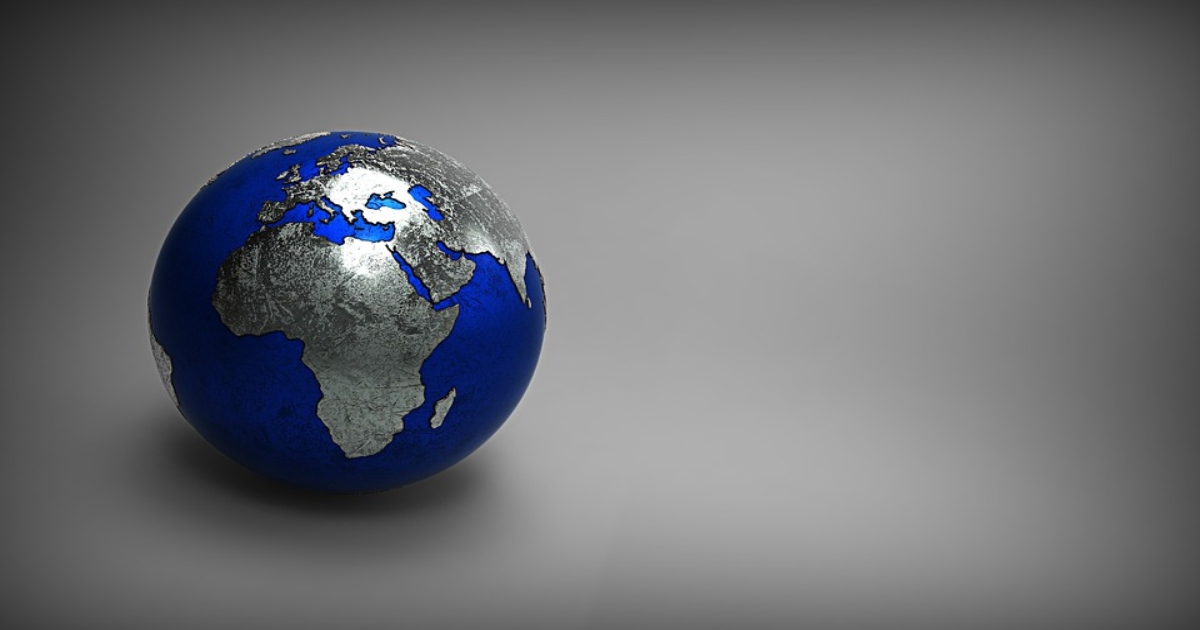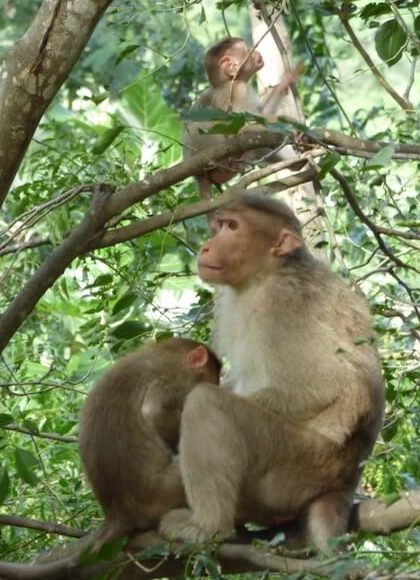Africa: Time for Truth-Telling?
Can U.S. President Joe Biden challenge human rights and corruption abuses at the June G7 Summit in Cornwall?
June 9, 2021

COVID-19 has encouraged even more corruption and human rights abuses in many sub-Saharan African countries. While not on the world’s radar, the pandemic has pushed tens of millions of Africans into absolute poverty.
The West’s most powerful governments are always quick to state how important Africa is, but then quickly slack off. In view of the increasing human tragedy, they should finally move beyond mere warm words.
Potential good news
Western governments must change their past behavior. The good news is that if they are finally honest in their policymaking, they can actually make real progress.
There is no better opportunity for truth-telling and ending decades-old policies of supporting corrupt African regimes than at the forthcoming summit of the Group of Seven (G7) in Cornwall, United Kingdom on June 11-13, 2021.
Joe Biden to the rescue?
U.S. President Joe Biden has publicly declared that a central pillar of his foreign policy is countering authoritarianism to secure democracy. Let him start at the Summit in the UK with some honesty.
Of course, these summits usually conclude with fine rhetoric about human rights and corruption. But those phrases are swiftly ignored when policies are pursued towards Africa that have just one priority – commercial exploitation.
A depressing historical record
In the quest for Africa’s vast natural resources – its gold, diamonds, oil, forest products, rare earth minerals and much more – multinational corporations have long obtained the backing of governments with colonial histories.
The list notably includes the United Kingdom, Italy, France and Germany, as well as the United States and Japan.
Joined by China
Now the Chinese are also active competitors. They have become the largest single sovereign creditor to Sub-Saharan Africa with their Belt and Road initiative and other investments.
These financing activities provide them with a strategic stronghold over Africa, a continent which they consider vital to their longer-term economic success.
Irrespective of the imprint that colonialism has left on Chinese history, the Chinese, too, ignore the human rights abuses. Worse, they all too often encourage corruption.
Pressures for change
Fortunately, the willful blindness which these Western governments and the leading multinational corporations that are active in Africa exhibit with regard to humanitarian and governance issues is now facing increasing challenges.
Part of the pressure to operate differently in Africa comes from investors themselves such as U.S. pension funds and major fund managers, such as Blackrock.
They are keen to strengthen their focus on environmental and governance policies pursued by publicly traded corporations.
For example, the environmental damage done by partnerships between natural resources companies and African governments is formidable.
A firm focus on abuses
The challenge to business-as-usual is all the greater because of the remarkable work of a rising number of organizations that are striving to secure public attention to human rights abuses and corruption.
These include Human Rights First, Amnesty International, Global Witness, the International Consortium of Investigative Journalists (ICIJ) and the Organized Crime and Corruption Reporting Project (OCCRP).
Their reports are increasingly securing widespread attention through social media. This has in turn encouraged more investigative journalism and civil society activism in the G7 countries, as well as across many emerging market and developing countries.
Telling the hard truth
I believe the public attention and therefore the pressures on Western governments may well be increased by the publication of a new book that Archbishop Desmond Tutu has noted, is “profoundly disturbing.”
The book by British journalist Michela Wrong is “DO NOT DISTURB – The story of a political murder and an African Regime Gone Bad,” published by Public Affairs.
Kagame as a villain
The villain in this book is President Paul Kagame of Rwanda. We have become accustomed to the “Big Men” that run African nations and remain in office for decades.
Their longevity and control on their nations provides the stable relationships that are good for business.
None of these authoritarian leaders has enjoyed better standing in the corridors of political power in much of Europe, US, as well as in the World Bank and the International Monetary Fund (IMF), than Kagame.
He is the man often depicted as having brought peace and stability to his country following the genocide there in 1994.
Michela Wrong gets its right
Michela Wrong’s book has attracted prominent reviews in The Economist, The New York Times, The Washington Post and many others. At first glance, this is odd when you consider that her subject is Rwanda, which rarely attracts much media attention these days.
However, Wrong hurls a powerful howitzer at Kagame’s skillfully fabricated myth as the post-genocide hero. This myth has often been promoted by Western governments (even though their diplomats have probably known the truth for years).
Wrong reveals extensive details of atrocities ordered and executed by the regime, including the foreign assassinations of former top officials who fled into exile.
She tracks down key individuals involved and some of their close associates. This part of the book reads like a mystery thriller.
More broadly, the author provides meticulous details of the atrocities perpetrated by Kagame’s forces in seizing control of Rwanda after the genocide and then continuing to order massive destruction in neighboring Congo.
Underscoring African realities
Other recent books have highlighted elements of the story of human rights abuses, corruption and Western governmental indifference.
Notable among those are two books published by Public Affairs – “The Looting Machine,” by journalist Tom Burgis, and, “The Dissent Channel: American Diplomacy in a Dishonest Age,” by Elizabeth Shackelford.
Together these books and the serious attention they are receiving can, finally, make more Western political leaders appreciate that their hypocritical policies are unsustainable.
The futile game of double standards
The United States cannot, for example, decry China’s exploitation of Africa while at the same time failing to ensure that there is full transparency in all dealings by U.S. oil, gas and mining companies with African governments.
All the more so as this is required under a U.S. law approved a decade ago by Congress – a law that has sadly never been enforced.
From Angola to Zimbabwe, ordinary African citizens are living in great poverty while national elites enjoy great luxury. Journalists are regularly imprisoned. Civil society organizations are censored and often shut-down.
Corruption is widespread involving deals between government leaders and Western-based corporations as well as with Chinese institutions.
U.S. leadership on the intolerable absolute poverty in sub-Saharan Africa and its true causes, at the Group of 7 summit in the United Kingdom, could have a powerful impact.
The summit could, for example, force the World Bank and IMF to take off their blinders and recognize that continuing to lend vast sums of cash to rotten regimes is to encourage further corruption and humanitarian abuse.
It is long overdue that the mainstream television and print media in Western Europe and North America (home to most of the G7 member nations) report much more fully on sub-Saharan Africa. They should take their lead from organizations like Global Witness.
Conclusion
There is no earthly reason why in the 21st century the most powerful nations in the world should continue to ignore the blunt kinds of truths that, for example in the case of Rwanda, are so starkly reported on by Michela Wrong.
Takeaways
The West’s powerful governments are always quick to state how important Africa is, but then quickly slack off.
In view of the increasing human tragedy in Africa, western governments must now move beyond mere warm words.
G7 Summit: Now is the time for truth-telling and ending decades-old policies of supporting corrupt African regimes.
Africa’s natural resources have been exploited for years by multinational companies with backing from UK, Italy, France, Germany, US and Japan - all past colonizers.
Irrespective of the imprint colonialism has left on Chinese history, the Chinese, too, ignore human rights abuses and often encourage corruption.
Western governments and multinational corporations exhibit a willful blindness with regard to humanitarian and governance issues in Africa. That is now being challenged.
Major U.S-based fund managers such as Blackrock want to strengthen their focus on environmental and governance policies in Africa
The US cannot decry China’s exploitation of Africa while at the same time failing to ensure full transparency in all business dealings with African governments.
From Angola to Zimbabwe, ordinary African citizens are living in great poverty while national elites enjoy great luxury.

